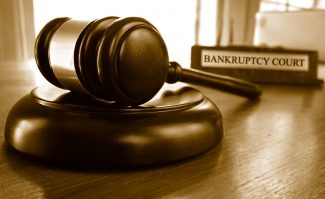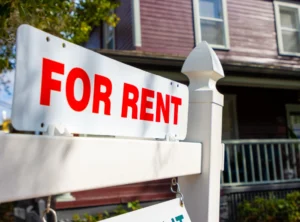 A tenant is responsible for paying their rent, but what happens when a tenant files for Chapter 7? Does a landlord still have the right to file for an eviction? Will you ever collect the money you are rightfully owed under the lease agreement? Learn the rights of a landlord when a tenant files for bankruptcy.
A tenant is responsible for paying their rent, but what happens when a tenant files for Chapter 7? Does a landlord still have the right to file for an eviction? Will you ever collect the money you are rightfully owed under the lease agreement? Learn the rights of a landlord when a tenant files for bankruptcy.
What Is Chapter 7?
Chapter 7 is one form of bankruptcy. In this type of bankruptcy, the debtor, which would be the tenant in this case, agrees to liquefy their assets. The tenant must submit a list of all debts and monthly expenses, as well as their income and assets, when the tenant files with the bankruptcy court.
Division of Assets:
After the initial filing, a third party administrator will be assigned to the tenant’s case. This third party will decide how to divide the tenant’s assets to pay the debts the tenant owes.
Automatic Stay:
After filing for bankruptcy a tenant will be granted an automatic stay. This means that a tenant’s debts will stay where they are. It puts a stop on any creditor being able to collect any debts that they are owed from the tenant. These creditors are not allowed to contact the tenant or to try to collect the debt they are owed.
Reject or Assume the Lease:
Renters who file for bankruptcy have the option of rejecting or assuming the lease.
- Reject the Lease: If the tenant rejects the lease, they must move out of the rental property. The tenant will still be responsible for any debt owed to the landlord before they filed for bankruptcy, but they will not be responsible for any new charges.
- Assume the Lease: If the tenant assumes the lease, they must become current with all money owed to the landlord. They must also deposit the next month’s rent payment with the court. If the tenant does not become current, then the landlord can continue with the eviction.
Landlord Filed for Eviction Before Tenant Filed Chapter 7
Some tenants have tried to avoid being evicted by filing for bankruptcy. Luckily for landlords, if you have begun your eviction proceedings before the tenant filed for Chapter 7, then you are still able to continue with the eviction process.
Exceptions:
- Tenant Becomes Current With Rent: Certain states allow tenants to stop an eviction by paying any back rent they owe. In these states, the tenant can file a sworn statement with the court acknowledging that the tenant has the right under state law to end an eviction by curing the rent they owe. This certification needs to be made at the same time the tenant files for bankruptcy.
- The tenant must also deposit with the court the amount of rent that they will owe the landlord in the next month. The tenant is responsible for providing the landlord with a copy of this statement.
- 30 Days to Become Current: The tenant will then have 30 days from the date of bankruptcy to pay the entire amount of any back rent owed to the landlord. If the tenant becomes current with their rent, the tenant needs to file a second certification with the court, stating all back rent has been paid.
- If the landlord does not object to either certification, the eviction will be stopped. If the landlord objects either time the tenant files the certification, the landlord and tenant will go to court to determine if the automatic stay will be lifted and the landlord can proceed with the eviction.
- Defaults Again: If the tenant defaults on their rent again, the landlord will have to file a motion with the court to get the automatic stay lifted. If the stay is lifted, the landlord will have to send the tenant a new notice to pay rent or quit and start the eviction process all over again.
Landlord Filed for Eviction After Tenant Filed Chapter 7
If a landlord attempts to file to evict the tenant after the tenant has filed for Chapter 7, the landlord will be unable to proceed with the eviction due to the tenant’s automatic stay. However, because of the national law preventing bankruptcy abuse, this automatic stay might be short lived.
Tenant Still Responsible for New Debt:
While a bankruptcy filing wipes away a tenant’s existing debt, it does not wipe away a tenant’s new debt. If the tenant is still living in your property, he or she is still responsible for paying the rent owed for the month. Since this would be considered a new debt, landlords are able to petition the court to get the automatic stay lifted so they can proceed with the eviction. In most cases, the court will agree to lift the automatic stay.
Exceptions:
Even if you have not filed to evict a tenant before the tenant files for Chapter 7, there are some situations which will supersede a tenant’s right to the automatic stay.
- Illegal Drug Use/Endangering Property: Landlords have a right to evict a tenant if the tenant has been engaging in illegal drug use or dealing or has otherwise endangered the property within the last 30 days. The landlord must file a certification with the court, stating this claim.
- Tenant Right to Object: The tenant has a right to object to these claims. If the tenant does not object within 15 days, the landlord can continue with the eviction. If the tenant does object, then the landlord and tenant will go before the court to determine if there is truth to this claim.
How Does a Landlord Collect Money Owed?
When the tenant files bankruptcy, the landlord should file a claim with the bankruptcy court, which is a statement of all the money the tenant owes the landlord. The court will decide the order in which the tenant’s debts will be paid.













 Accessibility
Accessibility